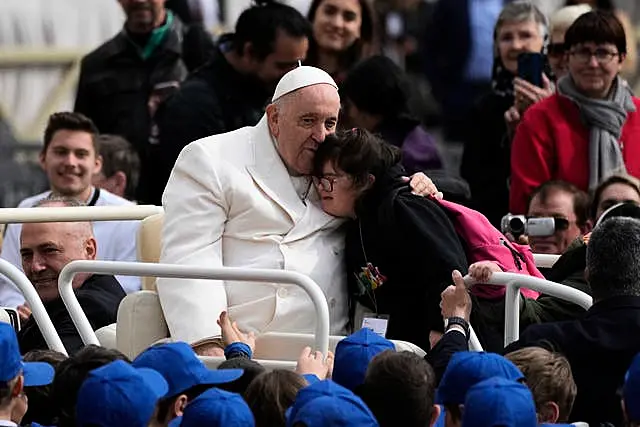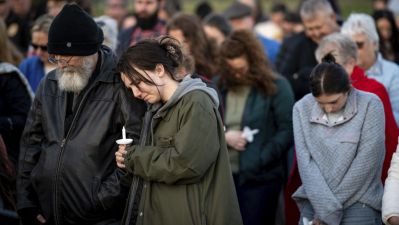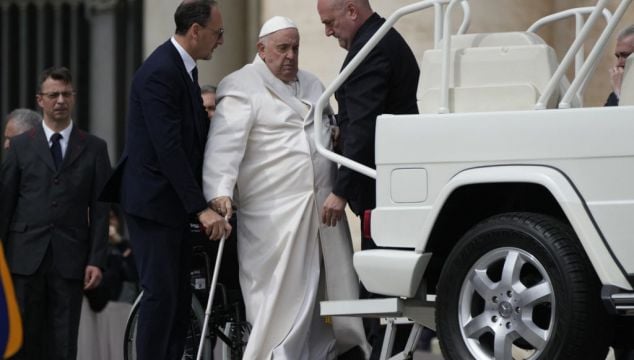The Vatican has said Pope Francis will be hospitalised for several days for treatment of a pulmonary infection after experiencing difficulty breathing in recent days.
Vatican spokesman Matteo Bruni said the pontiff, 86, does not have Covid-19, but requires several days of therapy.
He said on Wednesday that Francis had been suffering some breathing trouble in recent days and went to the Gemelli University hospital for tests.
“The tests showed a respiratory infection (Covid-19 infection excluded) that will require some days of medical therapy,” Mr Bruni’s statement said.

Earlier, the pope appeared in relatively good form during his regularly scheduled, general audience on Wednesday, though he grimaced strongly while getting into and out of the “popemobile”.
Mr Bruni said Francis, an Argentine Jesuit, was grateful for the prayers and messages wishing him a speedy recovery, including from the Italian bishops conference.
President Joe Biden, at the start of an Oval Office meeting with President Alberto Fernandez of Argentina, told reporters he had just learned of Francis’s health problems and said he was concerned about his dear “friend”.
The purpose of the medical tests was not immediately clear. Francis had part of one lung removed when he was a young man due to a respiratory infection, and he often speaks in a whisper.
He spent 10 days at the Gemelli hospital following the 2021 surgery for an intestinal narrowing, which included the removal of 33 centimetres (13 inches) of his colon.
Francis is due to celebrate Palm Sunday this weekend, kicking off the Vatican’s Holy Week observances: Holy Thursday; Good Friday; the Easter Vigil; and, finally, Easter Sunday on April 9.
He has used a wheelchair for over a year due to strained ligaments in his right knee and a small knee fracture. He has said the injury was healing and been walking more with a cane of late.

Francis also has said he resisted having surgery for the knee problems because he did not respond well to general anaesthetic during the 2021 intestinal surgery.
He said soon after the surgery that he had recovered fully and could eat normally.
But in a January 24 interview with the Associated Press, Francis said his diverticulosis, or bulges in the intestinal wall, had “returned.”







